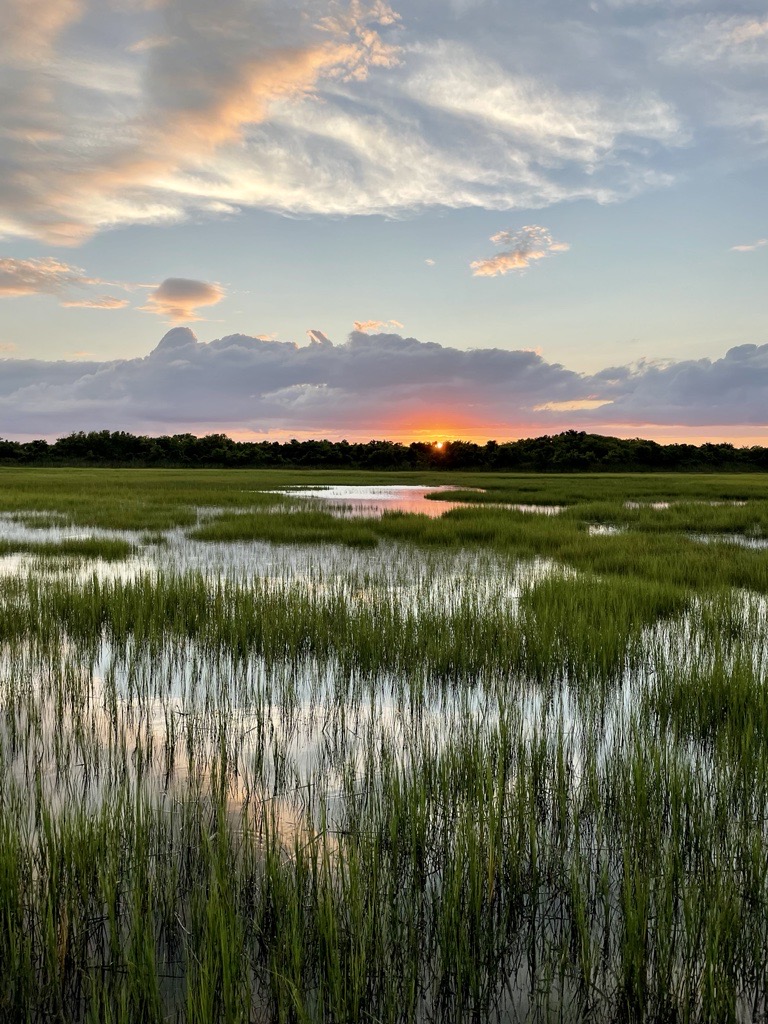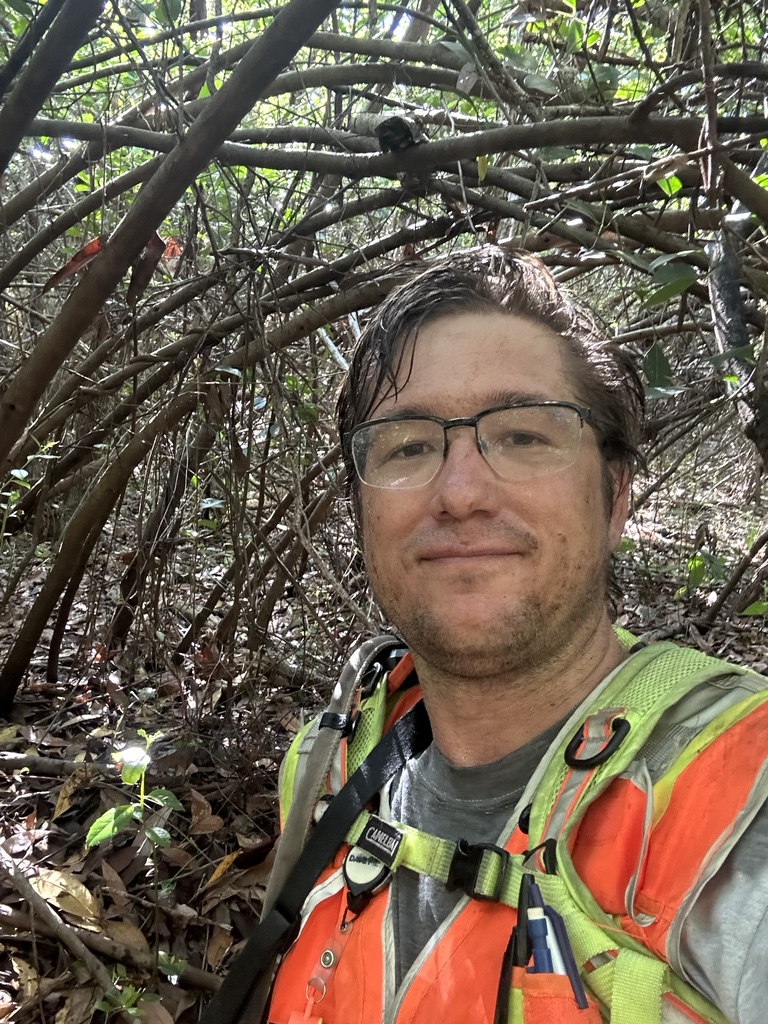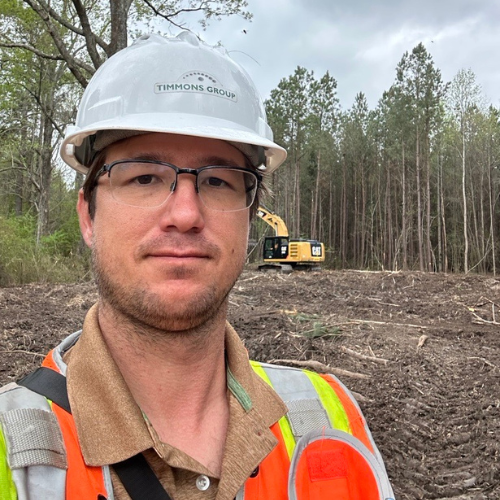During May, we celebrate American Wetlands Month—a time dedicated to raising awareness about the critical role wetlands play in our ecosystems, economy, and communities. This year, we’re highlighting Wilmington, North Carolina, a region rich in wetland ecosystems with a complex history and a vibrant future. We spoke with John Perry, an environmental scientist in Timmons Group’s Wilmington office, to explore the significance of wetlands in Wilmington and discuss the importance of finding a balance between economic development and wetland conservation.
Meet Environmental Scientist John Perry
John Perry is a highly experienced environmental scientist with over a decade of expertise in the Southeastern United States. His career spans both regulatory roles and consulting work, providing him with a comprehensive understanding of environmental permitting, wetland and stream delineations, wetland restoration, protected species reviews, and Phase I Environmental Site Assessments. John’s early work with the North Carolina Division of Water Resources gave him a strong foundation and extensive understanding of the state’s environmental regulations, which he has built during his consulting career.
In his current role at Timmons Group, John applies his skills across a wide spectrum of projects, including solar and wind energy, utility corridors, wetland mitigation monitoring, residential and commercial developments, and stormwater management. His extensive experience allows him to effectively guide clients through environmental permitting and due diligence processes, providing efficiency in coordinating development with regulatory requirements.

Wetlands: Nature’s Flood Control and Water Filtration
Wetlands are often described as nature’s sponges, and for good reason. They absorb excess water during heavy rains, reducing the risk of flooding in surrounding areas. Wilmington’s wetlands played a crucial role during Hurricane Florence, helping to retain floodwaters and prevent further damage. As Perry notes, “Wetlands help control floods, filter out contaminants, and protect downstream ecosystems.” Our clients benefit from having both environmental scientists and engineers in-house at Timmons Group, allowing for collaboration early on in the design process to incorporate existing wetlands into open space designs for developments where possible. This not only conserves these critical areas but also enhances flood control while meeting development requirements. Additionally, our engineers implement man-made stormwater control measures to improve water quality and address and mitigate flooding issues.

Timmons Group: Leading the Way in Due Diligence
John Perry’s role at Timmons Group involves extensive due diligence that ensures the efficient integration of development projects with federal, state, and local regulations. As he explains, Timmons Group provides thorough reviews for our clients that cover wetlands, threatened species, and cultural resources to ensure projects are completed efficiently and responsibly. “What sets Timmons apart is that we’re science-based and data-driven,” says Perry. “We do the hard work to make sure developers keep their projects on track.” By conducting thorough reviews during the beginning stages of projects, our clients are made aware of any potential issues and are given proactive solutions to prevent project delays or compliance complications. “We’re here to keep developers from hitting those roadblocks,” Perry adds. “It’s better for everyone if we can address problems before they happen.”

Looking Ahead: Protecting Wilmington’s Wetlands
As Wilmington continues to grow, the need for sustainable development becomes increasingly important. Wetlands provide essential ecosystem services, support biodiversity, and play a significant role in flood control and water filtration. Through the work of environmental scientists like John Perry, we can ensure that Timmons Group designs projects to avoid and minimize impacting these vital areas.
During American Wetlands Month, let’s celebrate the unique role that wetlands play in Wilmington’s history and future. By raising awareness and advocating for sustainable development, we can continue to enjoy the benefits of these remarkable ecosystems while conserving them for the future.




